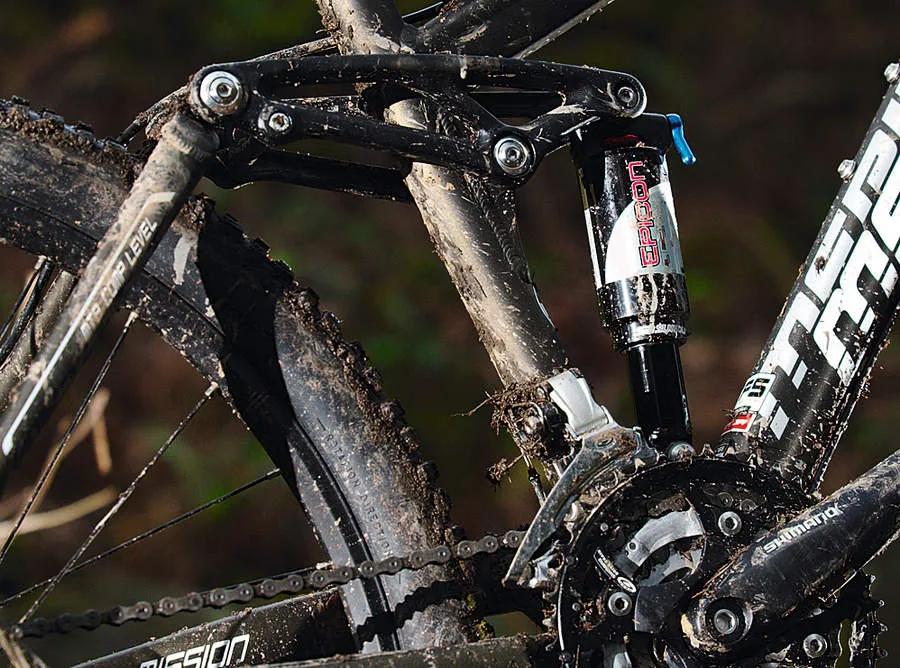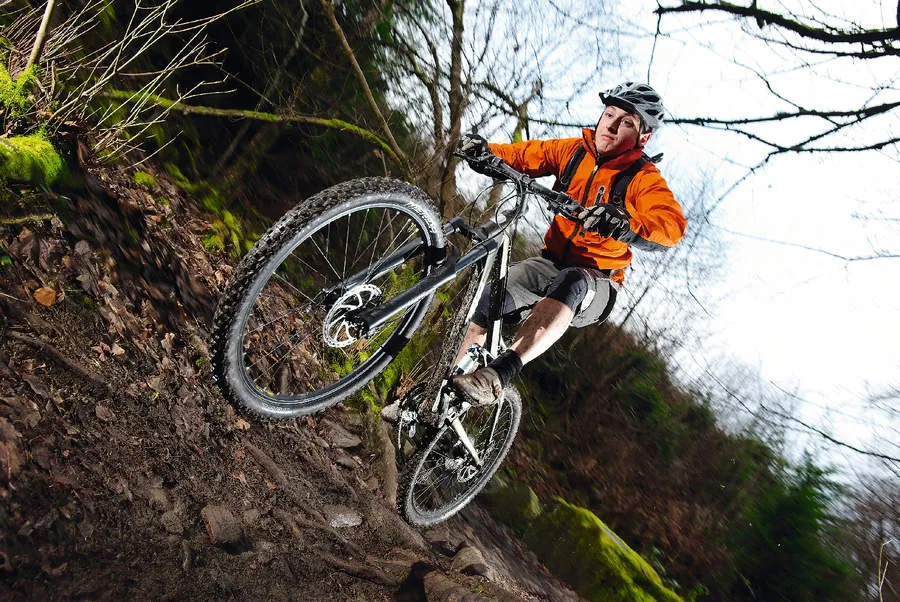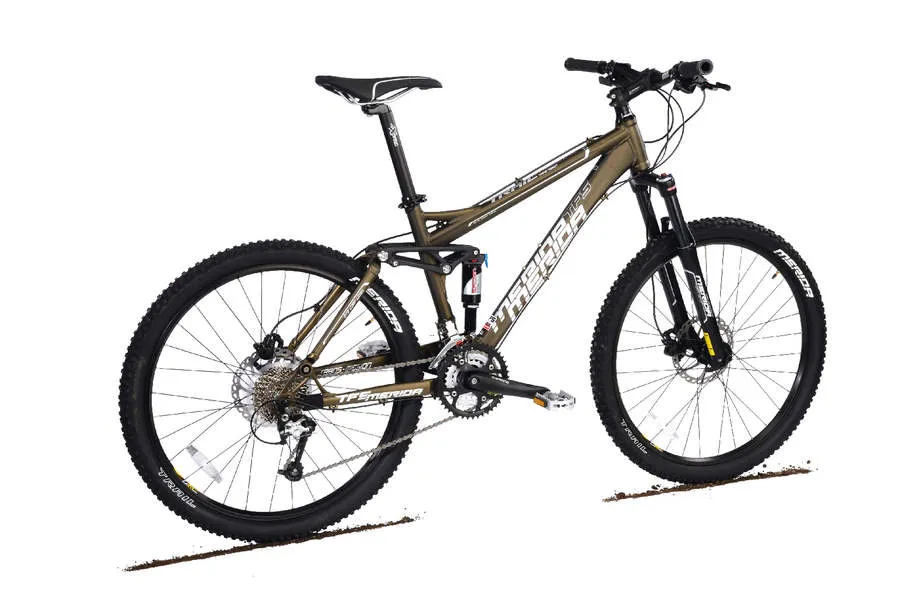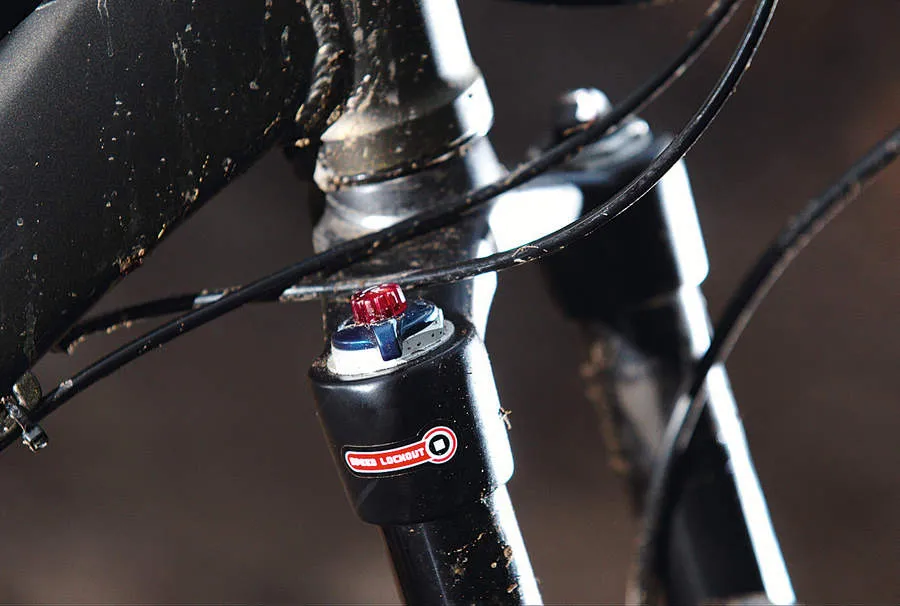We tested the Trans-Mission TFS 500-D’s cheaper stablemate, the 300-D, recently. It came up short, largely because of an overweight build and seriously underperforming fork, so we were looking forward to trying out its bigger brother.
The Trans-Mission TFS 500-D gets a fork upgrade, among other things, and it proves what we suspected all along – that Merida’s full-suss frame design is essentially sound, if a little overweight. There’s plenty to like and, if you’re not bothered about outright speed, it’s worth considering as a general purpose do-anything machine.
Ride & handling: Good balance and handling make for an easy-going trail companion
We were so underwhelmed by the 300-D’s fork that it ruined our experience of the rest of the bike. Thankfully, the TFS 500-D redresses the balance. While the 120mm Suntour Raidon fork has its faults, it’s actually a reasonable budget coil unit – and better than many we’ve seen.
At lower speeds the naturally active rear end keeps the back wheel tracking accurately over roots, rocks and small mammals while the fork patters away contentedly up front. Incidentally, it’s a good thing that the rear wheel tracks so well on technical climbs, because you’ll find that it’s here that the Merida’s weight can really be felt.
Pick up the pace and the shock and fork continue to work as a team, smoothing out medium-sized trail detritus efficiently. It’s only when the pressure’s really on that things start falling apart up front, with the fork’s harsh feel on big hits and occasional tendency to top out betraying its budget underpinnings.
By this stage the rear shock’s beginning to struggle too, but to be fair the fork handles tough descents better than many other budget coil units we’ve ridden. The handling’s tidy too, though the swept back bars can cause some wayward front wheel moments on those steeper uphill grunts.
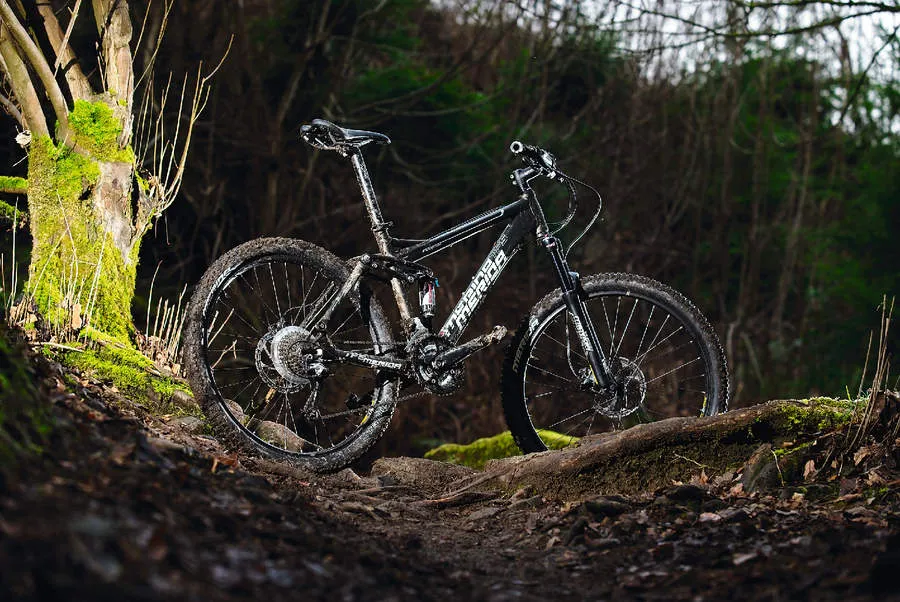
Frame: Tidy construction with good finish and attention to detail
No two ways about it, Merida’s marketing folk like their acronyms. The ‘TFS’ in the Trans-Mission’s name stands for ‘techno forming system’, which is Merida’s lower-cost alternative to the ubiquitous hydroforming process that’s used to shape and mould aluminium tubes.
The top and down tubes feature concave sidewalls, while the down tube bulges and curves where it joins the externally butted head tube for extra strength and rigidity. An extra brace joins the extended seat tube to the rear of the top tube, but it feels like an afterthought.
The rear end is a classic four-bar/single pivot hybrid, in the same mould as superficially similar Trek and Kona designs. The asymmetric swingarm features stays that swoop in ankle-clearing fashion from the main pivot to the airily cutaway dropouts, while the Suntour Epicon shock is driven by a pair of long, machined and heavily cut-out linkage plates.
As befits one of the biggest bike manufacturers in the world (Merida manufacture many of the big brands’ bikes), the quality of finish and attention to detail are extremely good. Sealed cartridge bearings all-round bode well for durability, while the machined quick-release seat clamp is an elegant piece of engineering in its own right.
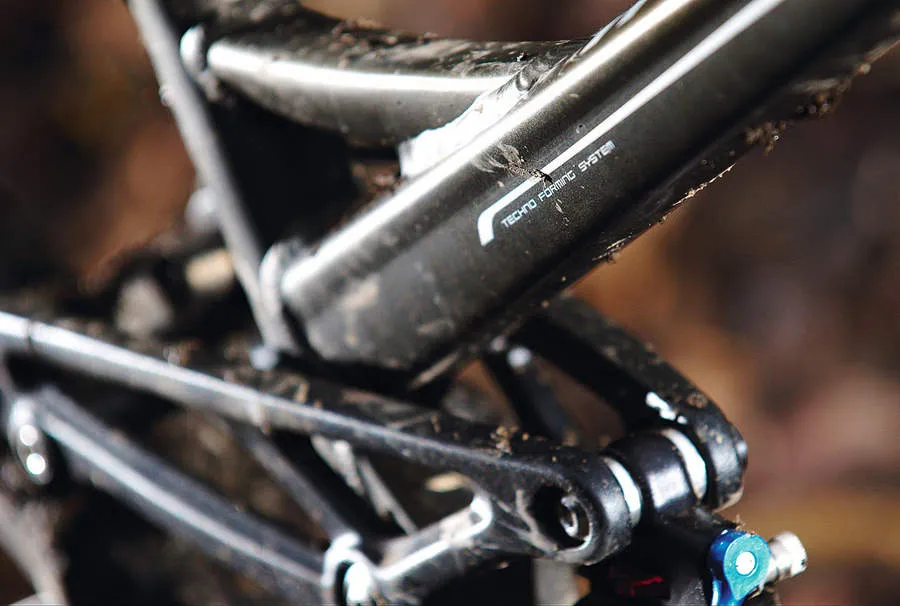
Equipment: Well balanced suspension and decent kit, but bike is heavy for its class
The Suntour fork and shock pairing buck the Fox/RockShox hegemony and offer reasonable budget performance, as well as a surprisingly balanced feel considering that one is air and the other coil sprung.
Both feature a lockout aimed, presumably, at riders concerned with excess bob. There’s also a blowout valve in both cases to allow big hits to compress the shock. But using the lockout seems to remove all rebound damping and add an extremely harsh top-out clunk, so it’s probably best left for the road.
As for the rest of the kit, there’s nothing that’s cause for concern, though we’re left scratching our heads as to how the Trans-Mission TFS 500-D ends up being one of the heaviest bikes in its class.
Transmission, brakes, wheels and own-brand finishing kit are all fine, though the pronounced backward sweep of the handlebar reduces the effective rider cockpit room and gives the steering a noticeably light feel. Good to see lock-on grips, though.
